Every Alex Garland Movie and TV Show, Ranked
- Oops!Something went wrong.Please try again later.
- Oops!Something went wrong.Please try again later.
- Oops!Something went wrong.Please try again later.
- Oops!Something went wrong.Please try again later.
Alex Garland is one of the most exciting filmmakers working today. His new film, “Civil War” (out now from A24), firmly cements this.
It’s the story of a group of journalists (led by Kirsten Dunst) who travel to Washington, D.C. amid a new Civil War, between successionist states and a totalitarian United States government. It’s provocative, insightful and thrilling – words that you could use to describe any of Garland’s many projects as a writer/director or just writer. And it was enough to make us want to revisit his entire filmography (plus the one TV series he made).
Let us now try to recap the work of Garland, from the lukewarm to the downright incendiary.
10. “28 Weeks Later” (2007)
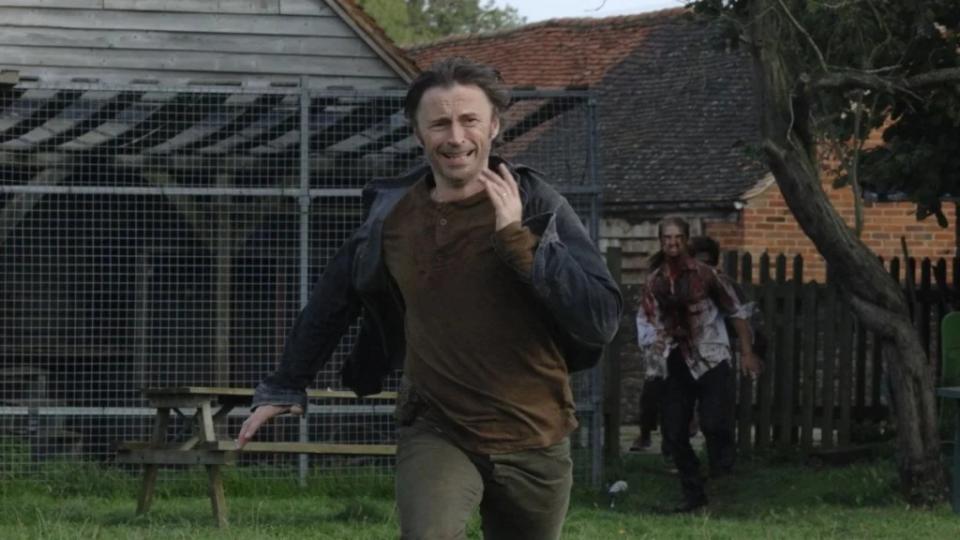
While Garland was only credit as an executive producer for the zombie-filled sequel to his debut screenplay “28 Days Later,” he also contributed to the screenplay, which is enough to land it on this list. The screenplay is actually credited to Rowan Joffé, director Juan Carlos Fresnadillo, E.L. Lavigne and Jesus Olmo, which speaks to how difficult it was to capture a film in the same spirit as that brilliant original. Fresnadillo certainly tries; he puts his shockingly great cast (including Rose Byrne, Robert Carlyle, Idris Elba, Jeremy Renner and Imogen Poots) through their paces as a NATO military group tries to establish a safe zone in London. (The influence of “Aliens” looms large.) But the emotion and existential angst of “28 Days Later,” along with the inventive photography and staging are absent (gone are the underwhelming digital cameras from the first film and along with it that immediate, you-are-there verisimilitude). Still, it’s hard to knock a movie where a guy uses a helicopter to turn marauding zombies into exploding blood bags. And Garland will have his attempt to properly revive the franchise soon enough …
9. “Never Let Me Go” (2010)
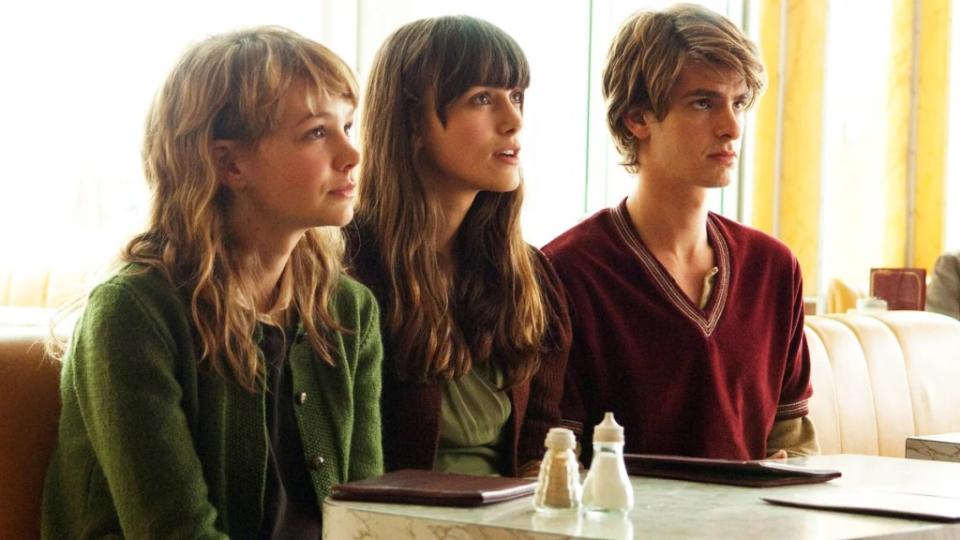
Garland always seemed like an odd fit for “Never Let Me Go.” Based on the best-selling and highly acclaimed 2005 novel from British writer Kazuo Ishiguro, the story, about a group of young clones who rebel against the society that created them (played by Carey Mulligan, Andrew Garfield and Keira Knightley, all wonderful), replaces the sharp edges and satiric bite of Garland’s previous work for sweetness and sensitivity. And the movie is beautifully put together, with smart direction from certifiable genius Mark Romanek (almost 15 years later, this served as his last film so far – what in the hell) and gossamer cinematography from Adam Kimmel. But it lacks the emotionality of the novel and without that, you start questioning things about the fuzzy internal logic of the world and the motivation of the characters, which is never good. Undoubtedly made with the best intentions, “Never Let Me Go” still feels like it’s five degrees away from being really special. And those five degrees, sometimes, are all that matter.
8. “Men” (2022)
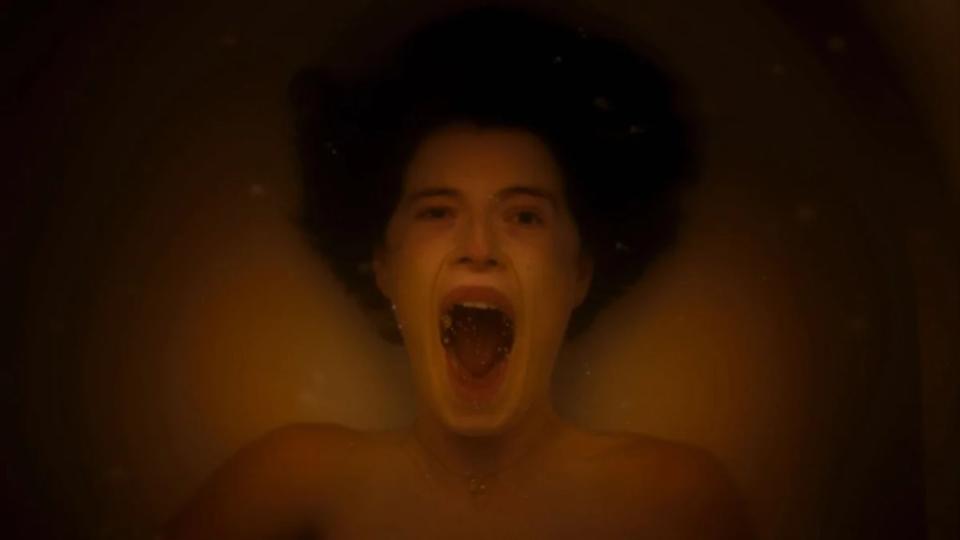
Quite obviously Garland’s quarantine movie, Jessie Buckley plays a woman who, after enduring a personal tragedy, travels to a remote English village where she starts getting harassed by its male inhabitants – all played by the great Rory Kinnear. It’s creepy and unsettling in its own unique way, with a nerve-jangling score by Ben Salisbury and Geoff Barrow. But for the first time in his directorial career, at least, the opaqueness that is so important to Garland starts to get in the way of the narrative. What he’s trying to say, beyond the general grotesqueness of men, remains slightly aloof, which prevents you from ever getting fully invested in Buckley’s plight. But it’s still a great bit of folk horror and contains one of the greatest WTF-worthy body horror climaxes in recent memory. That moment alone puts “Men” in spitting distance of greatness. “Men” is still an uncompromising big swing by a true visionary. And for that we are thankful.
7. “Dredd” (2012)
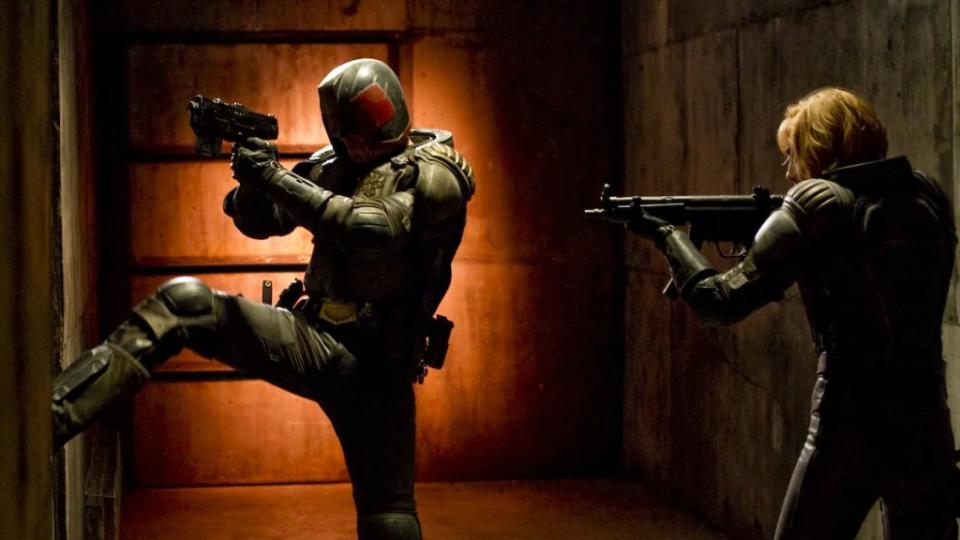
Yes, Alex Garland technically only wrote and produced “Dredd,” but if you believe its star Karl Urban, he also directed the movie, making it his unofficial directorial debut. (Garland has made veiled references to his involvement over the years.) And as a film it bares all the hallmarks of Garland’s later directorial efforts, including bursts of shocking violence and a tight, genre story whose bigger thematic concerns set it apart from other run-of-the-mill programmers. Garland was no doubt thrilled to take on the beloved British comic book character, a one-man judge, jury and executioner, who was previously portrayed by Sylvester Stallone in a forgettable but fun ‘90s movie. (Since it was Stallone, his Judge took off his helmet; blasphemous for the die-hard comic fans.) Garland wisely contains the action to a futuristic tenement building, putting Judge Dredd and his psychic sidekick (Olivia Thirlby) against a bunch of crazed criminals, led by a wonderfully oily Lena Headey from “Game of Thrones.” Full of fun visual flourishes (the street drug they’re cracking down on is called Slo-Mo, with cinematographer Anthony Dod Mantle bringing the sensation to life beautifully) and smartly staged action. But you can tell Garland couldn’t win everything; Pete Travis is still credited as director and the movie’s score, by frequent collaborators Ben Salisbury and Geoff Barrow, was replaced with one by Paul Leonard-Morgan. (Salisbury and Barrow put out their amazing, John Carpenter-esque score later as the album “Drokk: Music Inspired by Mega-City One.”) It’s brutally entertaining.
6. “Ex Machina” (2014)
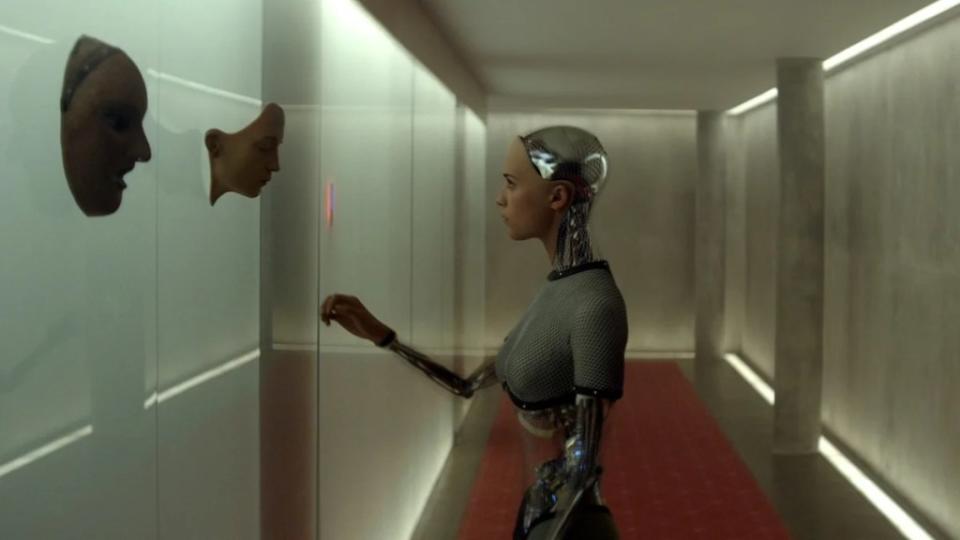
Garland’s first film as writer/director is a tightly knotted sci-fi story about a reclusive tech genius billionaire Nathan (Oscar Isaac), back when that kind of thing had some romantic appeal, who recruits a low-level employee Caleb (Domhnall Gleeson) to visit him at his brutalist compound. While there, the employee engages in a series of Turing tests meant to uncover whether or not Nathan’s AI is truly believable. In particular, he interfaces with Ava (Alicia Vikander), an eerily realistic robot who he starts to fall in love with – or at the very least feel sympathy for. “Ex Machina” is stuffed with all of the big, gooey, existential quandaries that define Garland’s work – what does it mean to be human, what is the nature of sentience, should we even be allowed to stay on the planet given how completely we’ve messed things up? And the movie grapples with these questions in an interesting, wholly engaging way. (Also, there’s a killer dance sequence set to Oliver Cheatham’s 1983 jam “Get Down Saturday Night” that involves Isaac and an electrifying Sonoya Mizuno, who is the closest thing Garland has to a muse.) By bringing something like Mary Shelley’s “Frankenstein” into the twenty-first century with such a sure hand and commitment to the material, Garland established himself not as one of the most exciting filmmakers currently working. His ability to meld satire and a slanted view of our potential viewer, with more human concerns about the nature of free will and the origins of desire, proved that he was not only lovingly playing with genre but also energetically pushing it forward. This would prove to be the case in the rest of the films he would make as a director and the projects he would champion in various capacities. Also we hope Ava led a long and happy life and killed a lot of humans.
5. “Devs” (2020)
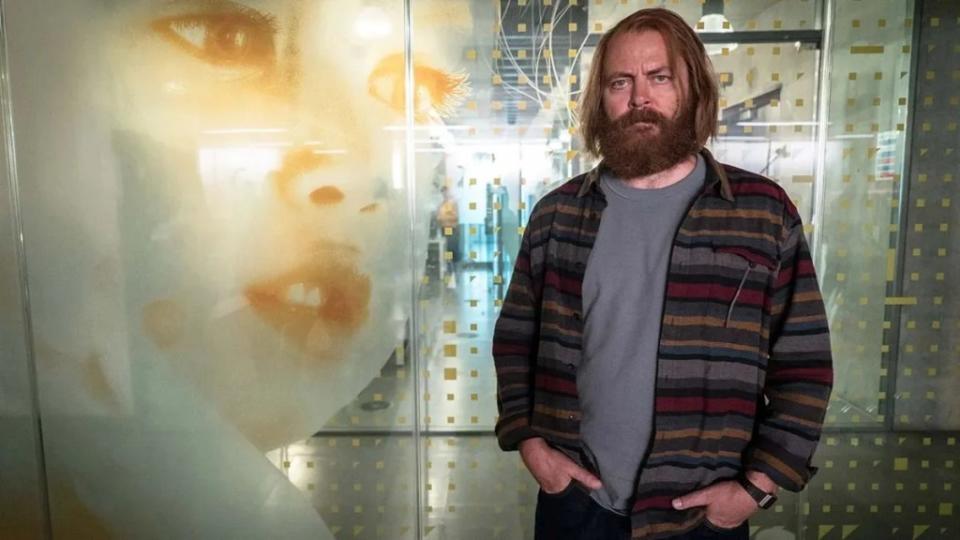
The idea of Alex Garland doing an entire limited television series – writing and directing all eight episodes while working alongside his usual collaborators like cinematographer Rob Hardy, composers Ben Salisbury and Geoff Barrow (this time joined by English jazz-pop band The Insects) and editor Jake Roberts, was an intriguing proposition. And “Devs,” as it was eventually known, really did live up to the anticipation. Garland regular Sonoya Mizuno takes center stage as Lily Chan, a softwear engineer at the tech giant Amaya, whose boyfriend (Karl Glusman) dies shortly after joining the team that is working on a super-secret project. This leads Lily to start investigating his death, eventually uncovering the truth about what happened to him – and what is happening in the ultra-secure, locked building. (Hint: it involves time travel.)
What’s fascinating about “Devs,” which features a stunningly wonderful cast that includes Nick Offerman, Jin Ha, Zach Grenier, Stephen McKinley Henderson, Cailee Spaeny and Alison Pill, is that, with the extra time that a limited series affords, Garland was able to engage in all sorts of philosophical and existential noodling, while also cramming the show with much more plot than is in his features. The nature of free will, determinism, what makes us human and questions of technology improving (or impairing) our lives are all brought up and worked through. And if those themes sound familiar, they should. At the very end of the eighth episode, in a movie that we’ve never seen before or sense, the show’s actual name was revealed to not be “Devs” but rather “Deus.” As in “Deus Ex Machina.” Not only is this a charming way to link “Devs” to “Ex Machina” but it also makes them exist within the same structure. The fact that “Devs” wound up being one of the most watched shows on Hulu (and that it aired in the nascent days of lockdown, when we were so desperate for new things to watch) speaks to its singular, elemental power. Just because it’s heady doesn’t mean it can’t also be popular.
4. “Sunshine” (2007)
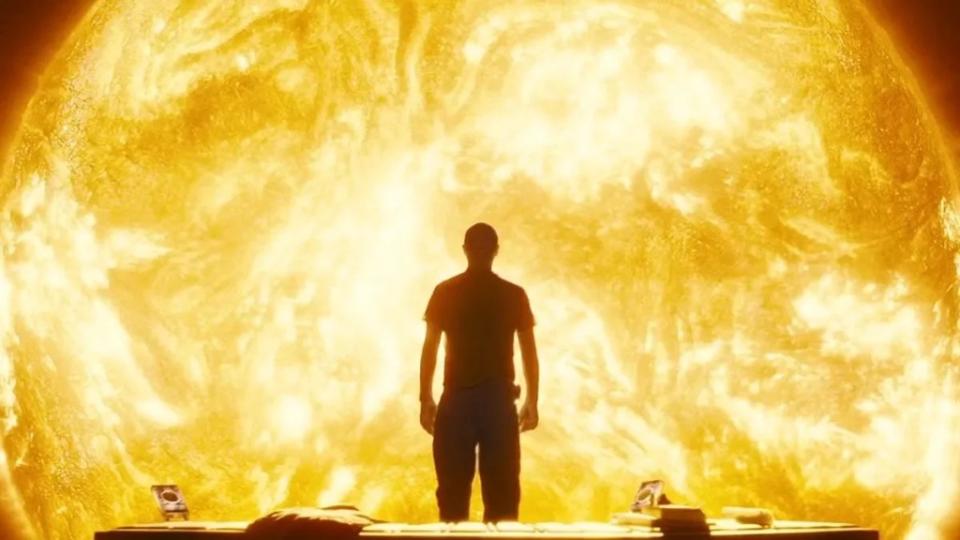
Danny Boyle and Alex Garland’s second team-up, after the genre-redefining “28 Days Later,” was a big science fiction spectacular about a group of astronauts (led by Cillian Murphy and including Chris Evans, Rose Byrne, Hiroyuki Sanada, Benedict Wong and Michelle Yeoh) who are attempting to re-start the sun and save a dying and freezing earth. It’s a wild concept, equal parts Andrei Tarkovsky and Michael Bay, and Garland and Boyle pull it off with aplomb. Not that audiences cared much for it at the time; it was a box office bomb, barely released in the United States. Critics didn’t care for it either, particular its final act (more on that in a minute). In the years since, though, it has rightfully taken its place as a modern classic, full of finely calibrated performances, beautiful visual effects and a thorny script that deals with the nature of humanity and the seductive power of things outside of our understanding (scientific or otherwise).
One of the issues that everybody brings up is the last section of the movie, when the team from the Icarus II finds the original spaceship meant to deliver the nuclear payload to the sun. They’re all dead, of course, with the captain Pinbacker (Mark Strong) transformed into a kind of shape-shifting monster, who proceeds to kill off the members of the Icarus II one by one. Time will tell, but this ending is actually highly effective. Not only does it keep the debate between god and science going until the bitter end, but it provides an almost insurmountable opponent for Murphy’s Capa to beat so that he can complete the mission. It is so scary and exciting and adds elements of “Alien” and “Event Horizon” to a bouillabaisse that already includes the aforementioned “Solaris” and “Armageddon” but also “2001: A Space Odyssey” (and Peter Hyams’ underrated “2010”). “Sunshine,” with its nerve-shredding score by Underworld and John Murphy (which has been endlessly sampled and ripped off ever since), is a one-of-a-kind experience. And an unforgettable one at that.
3. “Civil War” (2024)
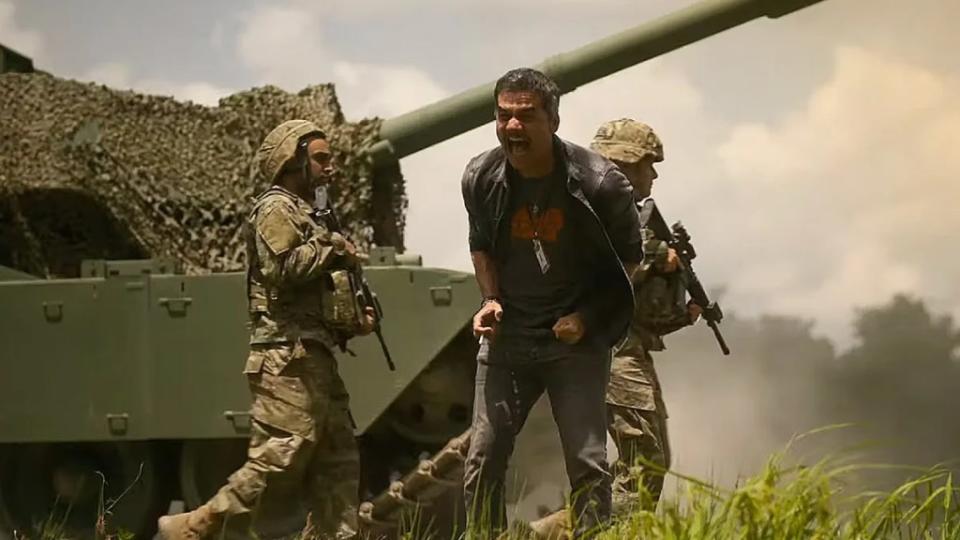
Garland’s latest is also one of his best. “Civil War” takes place in an undetermined future, where a new Civil War has broken out with successionist factions (including the Western Front, utilizing the combined might of California and Texas) going up against a United States that is being led by a tyrannical, third-term president (Nick Offerman). The film follows four journalists (Kirsten Dunst, Wagner Moura, Cailee Spaeny and Stephen McKinley Henderson) as they attempt to make their way from New York City to Washington, D.C., in an attempt to get an audience with the president (and an exclusive interview) before he is killed by the invading forces.
A road movie comprised of a series of suspense set pieces, “Civil War” is extremely unsettling. It’s also extremely entertaining. Garland seems to be channeling John Carpenter as much as Alfonso Cuaron, slyly offering satire without much explanation as to the specifics of the conflict or who are the “good guys.” (He seems to suggest in the midst of battle, everything becomes incredibly foggy.) Some have claimed that Garland is sidestepping the issue by not engaging in the actual politics of the scenario. But that would be too simplistic for him. He’s always been an elliptical filmmaker, full of conundrums and narrative curlicues. It’s not about why the battle is raging, just that it is. He wouldn’t have made the main characters journalists, who talk about how they have to remain objective because otherwise they’ll fall apart, asking themselves a series of endless questions that simply cannot answer. It’s a moral position as much as it is an intellectual one. And it allows “Civil War” to be enjoyed on the level of snappy social commentary as much as it is a kick-ass action movie. Full of images and sequences you simply cannot scrub from your mind (it’s one of the few non-horror movies to actually give me nightmares), backed by a killer soundtrack, and overstuffed with terrific performances big and small, “Civil War” is Garland working on a much larger canvas but still working over the themes and situations that have captivated his imagination from the very beginning. “Civil War” is worth going to war for.
2. “28 Days Later” (2002)
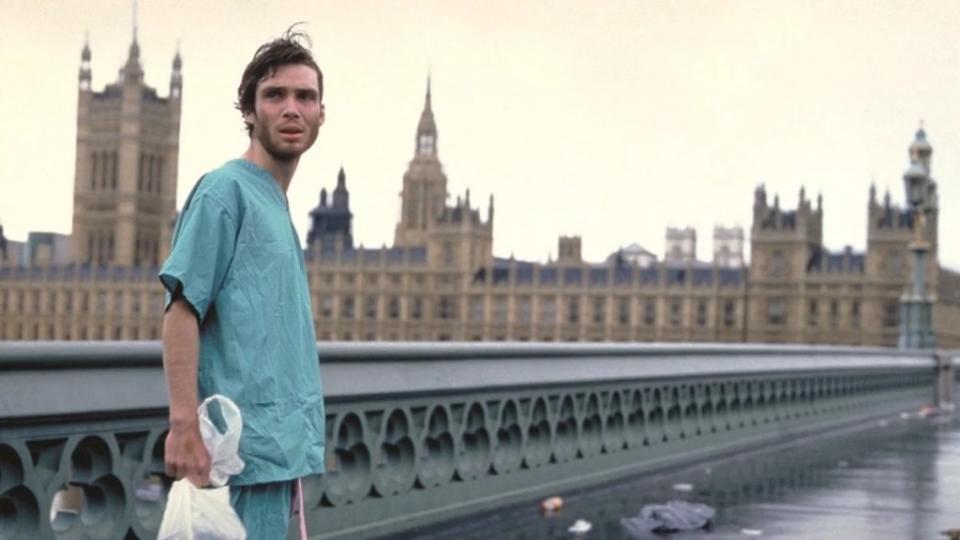
Few films can claim to singlehandedly reinvent an entire genre, but that’s exactly what Garland and Danny Boyle did with “28 Days Later.” Infusing the George Romero version of a zombie movie (a particular debut is owed to “Day of the Dead”) with the kind of moody British neorealism of somebody like Ken Loach or Mike Leigh alongside visuals that very explicitly conjure 9/11, the filmmakers created something both wholly new and certainly of a piece. Even if you’d never seen a zombie movie before in your life, “28 Days Later” would still grip you by the throat.
Cillian Murphy plays a bicycle messenger who is hit by a car and when he wakes up in the hospital finds a nearly abandoned London. (Him walking around bustling streets now devoid of people, accomplished without the aid of CGI, remain some of the movie’s most indelible imagery.) Instead of people, there are hordes of the undead (or in “28 Days Later” speak, “infected”). Is there a way to survive – or better yet, to actually live – in such chaos? And what happens to humans that have to exist alongside the madness? The back half of the movie deals with a bunch of crazy soldiers (again: “Day of the Dead”) and some didn’t like the narrative and tonal shifts that came along with that. But it feels very much of a piece, with Garland and Boyle working and reworking thematic concerns in a series of increasingly uncomfortable set pieces.
One version that Garland and Boyle attempted ended with Murphy’s character dying. But it proved to be too much of a bummer. There still needs to be a little bit of hope at the end of the world and Boyle, ever the humanist, needs it most of all. This remains a stone cold classic of the genre. We cannot wait for Garland and Boyle to reteam for “28 Years Later.”
1. “Annihilation” (2018)
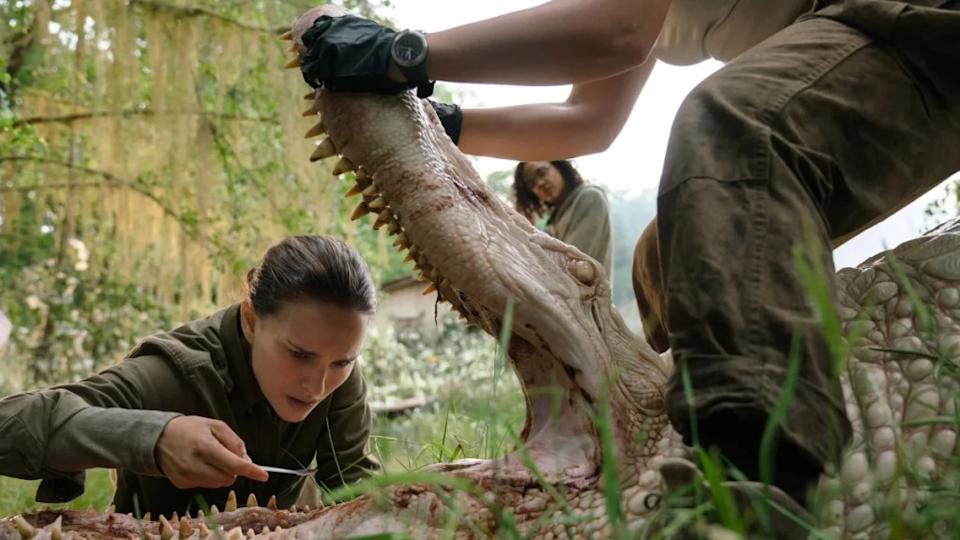
Garland’s follow-up to “Ex Machina” was barely released by Paramount and Skydance, who feared the movie was too esoteric, and widely criticized by the original author. And still “Annihilation” feels like the absolute greatest thing the filmmaker has done thus far – a brilliant, unwavering, oddly emotional sci-fi extravaganza and one of the weirder movies released by a major studio (if only just barely – it was released on Netflix throughout most of the world).
Natalie Portman stars as a woman whose husband (Oscar Isaac) has disappeared into and just returned from a strange zone in Florida dubbed The Shimmer. Searching for answers, she joins a team (including Jennifer Jason Leigh, Tessa Thompson and Gina Rodriguez) to investigate the phenomena and report back. Of course, the very nature of the Shimmer and its effect on those who enter its boundaries, is dangerously unknown. Garland’s knack for efficient characterization and his uncanny construction of thrilling set pieces are both on display here. And the fact that it builds to one of the most transfixing climaxes in sci-fi cinema, leading to one of the very best, conversation-starting conclusions this side of “Blade Runner,” is proof that he isn’t just one of the great “idea men” in genre cinema, but one of its most talented filmmakers.
Full of hidden details that demand multiple viewings and stuffed with striking image that haunts you long after the film is done, “Annihilation” is a new sci-fi classic. Maybe one day author Jeff VanderMeer will see where he went wrong. Someone as obsessed as he is with adaptation and mutation should have known better.
The post Every Alex Garland Movie and TV Show, Ranked appeared first on TheWrap.

